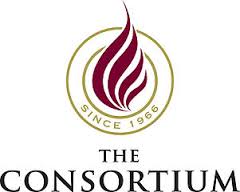School v. School: Berkeley Haas or UW Foster?

With all the options for incredible business schools throughout the country, it can be a tall order to narrow down programs and choose the right degree for you. In our School v. School series, you can compare and contrast some of the best programs around the United States, helping to cut through the noise and find the best MBA for you on the West Coast.
What is the Most Valuable San Francisco MBA?

There’s no doubt: San Francisco is a great city to earn your MBA. Located near Silicon Valley, business schools throughout the area provide not only an excellent education but also opportunities to interact with many tech and industry leaders in the area. But which MBA programs in San Francisco are the best?
This is not an easy question to answer. You can check rankings, to see which MBA programs perform well based on surveys and statistics provide to The Financial Times, U.S. News and World Report, and The Economist. And that’s a great place to start, but probably the most essential value when determining the right MBA program for you is your return on investment (ROI).
The ROI of an MBA program is one of the best indicators of what your MBA is actually worth. It looks at statistics such as average salary increase, post-graduation employment, tuition cost, cost of living, and more. To help you out, we looked in-depth at the best business schools in San Francisco to see which offer the best ROI. Continue reading…
March Madness Begins: Consortium MBA Draft Takes Place Today

Clear Admit recently highlighted this year’s Consortium for Graduate Study in Management MBA Draft, which is offering huge scholarship payouts for a lucky few. Check it out below.
No, it has nothing to do with basketball. A draft of another sort will take place today, but for some MBA applicants it could be as big as getting by the Golden State Warriors. We’re talking about the annual draft for the Consortium for Graduate Study in Management. Each year, the group’s member business schools offer tens of millions of dollars in fellowships to hundreds of MBA applicants, most under-represented minorities.
Held annually in mid-March, the draft is a complex matching up of leading business schools and applicants based on the order of preference expressed by each. Consortium member schools include the University of Michigan’s Ross School, UVA’s Darden School, UC Berkeley’s Haas School, Dartmouth’s Tuck School, and NYU Stern, to name just a few. When applicants apply as part of the Consortium Fellowship process, they benefit from being able to apply to six of the 19 members schools using a single application (with volume discounts for multiple schools). But then comes the tough—and critical—part.
The Importance of Ranking Your Consortium Schools Carefully
You have to rank your selected schools in order of your desire to attend, which will determine the order in which you’ll be considered for the Consortium Fellowship, a merit-based, full-tuition award. (There is the pesky little detail about needing to gain admission to a school or schools on your list.) Provided you are admitted to some or all of the schools on your list, your ranking then comes into play. If your first-ranked school declines to award you funding through the Consortium, the opportunity will be passed on to the next school on your list, and so on. According to a Consortium employee, the order in which applicants have ranked their choices is not revealed explicitly to the schools. Instead, each school is just not given an opportunity to offer you the fellowship until theirs is the top remaining school on your list.
Of course, another important part of the Consortium application is demonstrating a proven commitment to increasing the ranks of African Americans, Hispanic Americans, and Native Americans in business education and corporate leadership. The Consortium was founded in 1966 by Washington University professor Sterling Schoen around the mission of equipping more African American men with the requisite business skills to succeed in corporate America. Three schools and 21 men took part in the first year. Additional schools began to join as members, and in 1970 applicant membership was widened to women, Hispanic Americans, and Native Americans. In 2004, in compliance with a Supreme Court ruling a year earlier, membership was opened to all U.S. citizens and permanent residents who demonstrate a track record of supporting the Consortium vision.
Today’s Consortium MBA Draft Day
Fast forward to today, draft day. Representatives from the member schools are gathering with Consortium staff to begin the complicated matchmaking process, which at least in recent years has taken place in a St. Louis hotel room near the Consortium’s Chesterfield, MO, headquarters. Unless things have changed dramatically with recent additions to the number of member schools—the group has grown from 17 in 2011 to 19 this past July—the process includes six rounds and takes about four hours to complete.
Schools come in with their draft picks in hand, and the school designated as first choice by the most applicants gets to choose as many of those students as it wants to offer the fellowship. And so it continues, passing on to each successive school to select from its first-round applicants. If a school passes on an applicant at any time in the process, another school can then select that applicant in a later round.
From the applicant’s point of view, here’s what it looks like: Let’s say that Yale SOM is your first-ranked school and you are admitted into its MBA program. In today’s draft, Yale SOM will have first dibs on offering you the Consortium Fellowship. If Yale SOM does offer you the fellowship, everyone’s happy and you can choose to attend with the benefit of the fellowship. You may still be admitted to other programs on your list, but these programs cannot offer you the Consortium Fellowship.

But say you were admitted to Yale SOM but it doesn’t offer you the fellowship—or you don’t get into Yale—then the opportunity to offer you the fellowship is made available to your second-ranked school, and on down the line.
While only one school can offer you the Consortium Fellowship, that does not preclude the other schools on your list from offering you other school-specific scholarship funding. Once awarded by one school, the Consortium Fellowship is not transferable to another.
Regardless of whether you ultimately accept the fellowship and attend the school that offers it, you retain your Consortium membership status, granted as part of the application process. As long as you attend a school within the Consortium, you’ll get take advantage of a wide range of membership benefits, including valuable recruitment and networking events, webinars, and chats.
Why Would Anyone Turn Down a Consortium Fellowship?
Consortium member schools will typically select more students than they have fellowships for to account for the fact that some fellowship recipients will ultimately turn down their offers. What would make a fellowship applicant turn down a free ride to a top-ranked business school, you ask? Sometimes it’s admission to an even higher-ranked business school not part of the Consortium (Harvard, Stanford, Wharton, Columbia, Kellogg, MIT Sloan, and Chicago Booth don’t play the Consortium game). This becomes an easier decision if these other schools offer their own attractive financial aid enticements, which they often do. So in the coming Decision Week(s), keep in mind that schools that have picked you now get to anxiously await word of whether you pick them. It’s nice when the tables get turned, right?
The official Consortium Fellowship notification deadline is March 23rd, but we’d guess many schools will be eager to share the news of the fellowship award in tandem with the news of acceptance. It should be fun to watch on MBA LiveWire! Those of us here at Clear Admit are wishing luck to the applicants and schools involved in today’s Consortium MBA Draft and hope some terrific matches are made, resulting in hundreds of successful MBA careers and further expansion of the Consortium mission’s reach.
To those on MBA Livewire who have speculated about why some Consortium applicants learned of decisions from certain schools before stated decision deadlines, that’s also related to today’s draft. Consortium member schools will have needed to make admissions decisions for their potential drafts picks by today, regardless of the school’s own decision deadline. Some schools may choose to communicate those decisions to applicants early since they already will have been reached.
Learn more about the Consortium application process here. Applications for the Class of 2021 open in August 2018 are due in two rounds, the first in October 2018, and the second in January 2019.
U.S. News Reveals Sneak Peek of Its 2019 Business School Rankings

With just over a week before U.S. News & World Report reveals its eagerly-anticipated 2019 best business school rankings, the publication offered a sneak peek of the business schools that managed to earn spots within the top 10.
Unsurprisingly, the top 10 of the 2019 rankings resembles the publication’s 2018 edition, with nine out of the top 10 schools nearing the top of the annual list. The lone ranking variation from 2018 to 2019 will be the University of Michigan Stephen M. Ross School of Business, which came in 11th in the previous year.
The top ten business schools for the 2019 U.S. News rankings are as follows (unordered):
- The Wharton School at the University of Pennsylvania
- Harvard Business School
- The Booth School of Business at the University of Chicago
- The Kellogg School of Management at Northwestern University
- The Ross School of Business at the University of Michigan
- The Tuck School of Business at Dartmouth University
- The Sloan School of Management at MIT
- The Stanford Graduate School of Business
- University of California—Berkeley (Haas)
The one school left out of the newest rankings from the previous edition was the Yale School of Management.
The publication will release the full list of the 2019 best business school rankings will officially arrive on March 20, 2018. Stay tuned for more updates on the rankings on MetroMBA.
Our 5 Favorite MBA Podcasts Right Now

Clear Admit recently looked into some of the best business school podcasts out today. Take a look at a few of the premiere productions below.
Many business schools and MBA students have recently begun to produce podcasts, discussing the diverse range of student and graduate experiences as well as current trends and relevant topics in business. These podcasts are unique in that they provide a candid, first-person look at business school from those currently enrolled, allowing for an open platform to discuss business topics outside of the confines of the university. While this is a fairly new trend, there are several different podcasts out there for those who might be interested to learn more. We’ve assembled our five favorite MBA podcasts right now, and we’ll keep an eye out for new podcasts to highlight going forward.
Business Beyond Usual, by Ross Business School Students
One very cool MBA podcast on our radar is Business Beyond Usual, produced by students at the University of Michigan’s Ross School of Business. The podcast tackles a variety of issues of interest to both prospective and current business school students. Recent episodes have delved into topics including:
- Is business education a waste of money?
- Do school rankings actually mean anything?
- If you want to make a difference in the world, is working for a consulting firm selling out?
The podcast describes itself as having no rules or moderators, so those looking for an unfiltered opinion on the MBA experience may be interested in what these Michigan students are doing. With more than 20 episodes in the series already, there’s a wealth of material already for this relatively new podcast. Business Beyond Usual is available on iTunes, Stitcher, and Soundcloud.
Why CBS Podcast
Those looking for an Ivy League perspective may be interested in the Why CBS Podcast, a series for Columbia Business School hosted by Fahad Ahmed, a 2017 graduate of the program. Why CBS features interviews with students, faculty, and alumni who speak candidly about their MBA experience at Columbia, as well as the time leading up to the program and their lives and careers after graduation. Why CBS is currently available on the iTunes Store.
Wharton FinTech Podcast
MBA students at the University of Pennsylvania’s Wharton School have been producing their own podcast, FinTech, since 2015, one of the earliest examples of this fairly recent trend. Boasting a back catalog of almost 50 episodes, this prolific podcast focuses specifically on global financial services, featuring diverse perspectives from CEOs, investors, students, and researchers. This “informative and high caliber” podcast is well-liked by its listeners, offering “a great source of insight into the minds of the founders, investors, and leaders in financial technology,” according to one user review.
Berkeley-Haas Podcasts
While they do not produce a serial podcast like many others, UC Berkeley’s Haas School offers a variety of podcasts and webinars on its website, including several produced by the admissions staff that provide a wealth of information for prospective applicants. There’s a series on financing your MBA, another series of webinars featuring current students discussing the school’s various areas of emphasis, and a third three-part series by Stephanie Fujii, the former executive director of the full-time MBA program, focusing specifically on what the school looks for in its applicants and how best to prepare for your application process.
There’s also a Humans of Haas Podcast produced by students in the full-time MBA program, though most seem to have graduated last year and it’s unclear whether anyone has taken up the reins to continue the podcast going forward. But there are four episodes available on Soundcloud that are worth checking out if you want to get a feel for the school’s students and culture. Each episode focuses on a specific theme and their titles include “Love at Haas,” “Vets at Haas,” “The Politics of Hair,” and “But Where Are You Really From?”
University of Chicago Booth School of Business Podcast
Also of note is the Chicago Booth Podcast Series. This production interviews a variety of CEOs, faculty, and other experienced professionals on a wide array of topics related to current and historical trends in business and finance. Selected archived episodes are available to stream for free on the school website and include diverse topics such as gender and the pay gap, interviews with important historical figures in business, and research on fiscal and monetary legal policy.
These are just a few examples of the many podcasts out there being produced by students and graduates as well as more officially by the schools themselves. These types of podcasts offer a fresh alternative to the often noisy, polluted world of online business commentary and there’s likely a podcast out there devoted to almost any topic that a prospective or current MBA might be interested in learning about.
Inside the Relaunch of the Berkeley Entrepreneurship Association

Entrepreneurship at the Haas School of Business at UC Berkeley is getting an upgrade. Right now the university is working to rebrand and relaunch the Berkeley Entrepreneurship Association (BEA). While the newly updated BEA isn’t available yet, it’s in the works and will have many exciting announcements over the next weeks and months.
We were lucky enough to get an inside look at what’s coming to the BEA in a talk with Luca Cosentino, MBA’19, the President and Co-Chair of the BEA and the man behind the re-launch. Here’s the inside scoop!
MetroMBA: What is the Berkeley Entrepreneurship Association (BEA)?
Luca Cosentino: The Berkeley Entrepreneurship Association is meant to be the one-stop shop for entrepreneurship at Berkeley. Ideally, everything that happens around entrepreneurship should be coordinated or monitored by the BEA. It’s not just for business school, but also for students across the campus. It’s the umbrella under which all entrepreneurship initiatives, partners, mentors, funding, and resources will rest.
The BEA has been at Berkeley for a while as a collaborative effort, and it did a great job before, but we are adding to it. Prior to this relaunch, the BEA focused on one-off events and bringing founders to school. They did a great job regarding inspiring people to entrepreneurship. We want to keep doing what they did—the education side—but add the practical side. In this sense, the innovation is massive.
We are rebranding BEA. We are moving from one-off events to something that the potential to be around for twenty years and could be translated into a core university program matching what the University currently offers on entrepreneurship.
The one thing I want to underline is that is that every university has entrepreneurship programs where you’re matched with other people, but the value here is that we’re connecting people from different schools around the community of entrepreneurship. We are working to build the entrepreneurial community at Berkeley. The value of this community is that it won’t be agnostic to one specific initiative but will serve as an umbrella for all.
MM: Why is the BEA important and what is its goal?
LC: Before getting started with BEA, I spoke to a number of people from different business schools around the country. I wanted to know how each school dealt with entrepreneurship and how it was defined. What I noticed was that there were a bunch of great resources for helping students understand what entrepreneurship is, but it was really hard to find programs that helped students move from zero to one—from a basic idea to “Okay, let me try.” Students have access to many great initiatives where they can brainstorm and talk about their ideas, but to move from an idea to start effectively doing something around that idea is a completely different story.
We believe that if we give business students all the weapons and tools they need to start working from day zero, it’s going to have a massive impact on everyone’s career.
We also noticed that, too often, schools separate skills. For example, the computer science department is separated from the data scientist group and the information group. But we all know that entrepreneurship, great ideas, and great companies come from different skill sets, backgrounds, and diverse teams. We want to encourage that.
A student’s life is busy. Their schedule is packed, so going out and finding people that you like and that you want to work with that are aligned with your ideas is pretty difficult. We want to make this process faster. We believe that this is a great value we’re going to bring to students.
The application of the BEA is very big and far-reaching. There’s a strong impact on entrepreneurship itself, but also for employers and students. We all know that employers are keener to hire people from an entrepreneurial background. There’s a definite advantage for companies who bring on employees who have gone through capitalist discovery, testing, etc. This program really offers 360 degrees of benefits.
CA: What will the BEA offer?
MM: As an organization, we have a few missions starting this year and moving into next year.
-
Encourage Entrepreneurship
Our first mission is to encourage people to start companies. When you think about the typical MBA student who takes two years off to come to school and study, their main goal is to gain more experience and skills. Many MBA students also come to business school because they want to do something different, or possibly, follow their passions. But, when it comes to business school, entrepreneurship, generally, has a less relevant place compared to companies who offer internships or full-time positions. What we’re trying to do is encourage students to start companies and give entrepreneurship a try.
-
Create Entrepreneurial Collaboration
The main innovation that I’m most excited about and what we’re working hard to start in the fall is a program that connects students and individuals from across different schools and different backgrounds. For the first time in Berkley’s history, it will be an initiative led by students and coordinated across different schools. I believe it will be the largest program ever created at Berkeley connecting technical and business students, student clubs, VCs, mentors, funding sources, and institutions.
The goal of the program is to take great ideas and start them along the process, through customer discovery to business model evaluation. The steps are as follows:
- First, the program will allow people to present their innovative ideas.
- From there, the BEA would match the idea to a team of three or four people with different interests.
- Then, over three to four months, that team would work together to gather every resource they need to transform the idea into a workable concept company.
Currently, the program name has not been announced, but it will be released in a few weeks. For now, everything has already been put in place, and Berkeley is ready to launch their first cycle in Fall 2018.
-
Connect the Entire Entrepreneurial Community
The next focus for the BEA is to connect students with startups. There are many students and MBAs who are not 100 percent keen to start their own company but are curious about what it’s like. Our goal is to offer them a part-time experience, while in school, that offers them a unique chance to test their skills in a start-up environment.
Part of this focus will also be to connect the startup ecosystem at Berkeley. That means connecting startups, accelerators, VCs, etc. Already, we have collaborations with many different communities including:
- Participating Clubs: Computer Science Undergrad Association (CSUA), Computer Science Graduate Association (CSGSA), FemTech, Mobile Developers at Berkeley, Data Science Society, Upsilon Pi Epsilon Computer Science Honor Society, and many more coming.
- Collaborations: Xoogler community (community of ex-Googlers), Google Launchpad, Startup Grind, Dorm Fund, Sutardja Center for Entrepreneurship, SkyDeck Startup Squad, Citris Foundry, Food Club, and more.
-
Entrepreneurial Education
Finally, the last thing we’re launching is an educational program that will include courses, a new website, a new blog, and a new podcast (all launching soon) that will include information from entrepreneurs, venture capitalist, product managers, blockchain, and more.
Other educational programs that we will be launching include:
- A cross-schools educational event that we hope will help bridge the cultural gap between students in different schools.
- Life as an Entrepreneur: a seven-week class with a variety of speakers including founders, VCs, etc.
- Educational events around hot technical topics.
Currently, the Berkeley Entrepreneurship Association is still in its early relaunch phase. The newly updated website will be up in the next few weeks so check back on the school website and the Berkeley Haas Entrepreneurship Program regularly to catch its launch.
